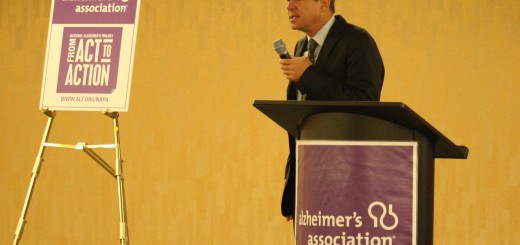New AD guidelines: Implications for the health care system
Sometimes the news we read and hear about Alzheimer’s disease is dizzying and it seems that only researchers with multiple initials after their names can understand and make sense of such new developments. But, frankly, I think that’s a good thing, because it means that progress is being made”¦..progress we need, as the numbers of people with Alzheimer’s will explode over the next decade.
We all know it takes a very long time for certain “truths” to become mainstream, but when the light finally goes on, it’s a great moment. Take major news this week that for the first time in 27 years, new guidelines are being issued that recast the definition of Alzheimer’s disease.
Inherent in these guidelines is the understanding that Alzheimer’s begins its nasty work on the brain years before you even see any symptoms. Of course, those of us who have been absorbing information about Alzheimer’s for years have known about this for a long time. But, now, we have experts coming together shedding light on this phenomena and explaining that identification of the disease will occur earlier and earlier.
Also expressed in the new guidelines is the definition of the “middle phase” – those people with “mild cognitive impairment linked to Alzheimer’s.” While still able to function independently, there is some difficulty with memory, attention or other mental faculties. Finally, the guidelines clarify diagnosis criteria for people with dementia symptoms, distinguishing Alzheimer’s from other dementias, including vascular, fronto-temporal and Lewy body. This is important because symptoms and behavior differs and treatment guidelines can also differ.
Connecting the dots between research, treatment and policy brings us to a bill just introduced in Congress that would create specific Medicare cost codes for Alzheimer’s diagnosis, including steps involving discussions between the patient’s doctor and caregivers. The reason this is so crucial is that well-informed family members often results in better planning and care. That’s just better for everyone. We’ll keep you posted on how this bill moves through the process and hope that the fierce debate on the budget doesn’t allow the naysayers to dismiss the importance of this legislation.
These new guidelines will bring a whole host of other issues to deal with and it’s up to all of us to begin to think of ways to inform the public, and to ensure we have enough capacity in the health care system to deal with increased demand.
We can do it. The California Alzheimer’s State Plan addresses some of these issues and is certainly a step in the right direction. We can’t take our eye off the ball for a moment.

















